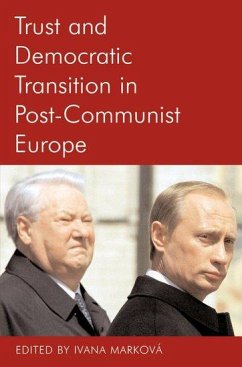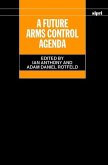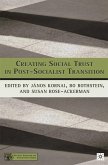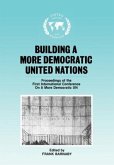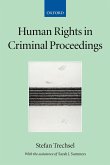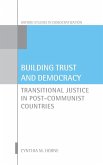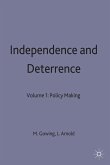These ten essays are concerned with theoretical and empirical analyses of trust and distrust in post-Communist Europe after the collapse of the Soviet bloc in 1989. The contributors come from different disciplines, ranging from history, economics and political science to social psychology and sociology. They are all specialists on the countries about which they write, and they show above all that the Soviet 'bloc' was in fact a rich spectrum of different countries with diverse histories, cultures and traditions, and--not surprisingly--with different expectations for the future. Like other social concepts, trust never makes sense in isolation but only within the network of other concepts--in this case, social capital, faith, belief, solidarity, reciprocity and security. 'Trust' is a highly polysemic term. Differences between meanings of trust in countries with democratic traditions and in post-totalitarian countries raise questions about the ways in which history, culture and social psychology shape the nature and development of political phenomena. These questions include: antinomies such as trust versus risk, and trust versus fear; the co-existence of rural and urban systems; legitimacy of different political regimes; and the arbitrariness of decisions and the abuse of common sense in totalitarianism. The transition period in many post-Communist countries has now been completed and in others it is likely to be completed in the near future. Yet the authors show that while political and economic changes can have rapid effects, cultural and psychological changes may linger and influence the quality of political trust and representations of democracy. Aspost-Communist countries become members of the European Union, many problems discussed in this book will recede into history. Yet the theoretical issues addressed by the authors, such as the interdependence of politics, culture and human psychology, will remain central to current and
Hinweis: Dieser Artikel kann nur an eine deutsche Lieferadresse ausgeliefert werden.
Hinweis: Dieser Artikel kann nur an eine deutsche Lieferadresse ausgeliefert werden.

